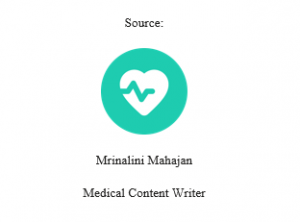[the_ad id=”6076″]
In the ever-evolving landscape of healthcare, the year 2024 promises to be a critical turning point due to a confluence of factors. The global healthcare services market reached nearly $7.5 trillion and continues to grow, surpassing $9 trillion in 2026. The global healthcare IT market is poised to grow at a CAGR of 13.1% between 2021 and 2030.
Technology and medicine are considered to be emerging in unprecedented ways. From medical devices and robotics to telemedicine and predictive data analysis, tech trends are accelerating healthcare innovations.
Artificial intelligence aims to dramatically change everything from the way we develop medicine and treat patients to the business and commercial side of healthcare. Whether it is the providers, counselors, medical practices, or hospitals, healthcare professionals are eager to harness advanced software to foster growth in the healthcare segment.
The healthcare landscape is dynamic, and current trends are rapidly changing, considering different factors, including technological advancements, regulatory changes, and events. Healthcare leaders recognize the need for addressing growing health disparities and the challenges of keeping the health system easily accessible and sustainable.
Let us have a look at health-tech trends and digital innovations-
-
M-Health-
Refers to the use of mobile phones and wireless technology in medical care. The use of this technology is to educate users about preventive healthcare services. However, it is also used for disease early detection, treatment support, epidemic outbreak tracking, self-health checks, and chronic disease management. The digital transformation trend in healthcare empowers patients to monitor their health, schedule appointments, and access medical resources conveniently via smartphones and health wearables.
mHealth bridges the gap in the care industry by allowing patients to communicate with their care providers and vice versa without meeting face to face. The growth of mHealth aligns with the digital transformation in healthcare, driving advancements in patient-centered and technology-enabled healthcare delivery. The number of smartphone users in India has reached about 600 million. With such a large number, the potential for bridging the gap is certainly a growing market for online healthcare.
-
AR/VR in healthcare industry-
Augmented Reality (AR) and Virtual Reality (VR) are evolving rapidly and are poised to impact the healthcare industry in 2024. AR and VR offer interactive and immersive experiences with medical education, allowing care teams to view anatomy and practice procedures in a virtual environment. This helps improve the understanding of complex medical concepts and enhances skills.
AR helps project medical images, thus aiding doctors in diagnosing conditions accurately. Virtual reality can be used to simulate complex surgical procedures, allowing doctors to practice before performing them in the real world. By 2024, the use of AR and VR in healthcare is likely to have grown substantially. This technology will make healthcare services more accessible and affordable, potentially improving healthcare outcomes, reducing costs and errors, and offering a more engaging and effective learning experience.
-
Robotic Process Automation
According to the World Health Organization’s prediction, the global shortage of health workers could reach 12.9 million professionals by 2035. The large-scale adoption of Robotic Process Automation (RPA) solutions in healthcare can cure inefficiencies in the healthcare sector. RPA bots are an important milestone in the development of healthcare information technology. Healthcare providers can experience precise automation, cost reduction, workforce optimization, and more.
For the patient, AI algorithms can help them scan their symptoms with more precision than traditional search engines. The innovation of RPA has introduced robots that mimic human behavior in the medical sector with numerous capabilities, including scripting detection, data entry, and the implementation of predefined actions. In 2024, RPA will be applied by healthcare companies for appointment scheduling, information management, hospital management, and optimal care delivery.
-
Telemedicine 2.0
The practice of delivering healthcare services remotely is an emerging trend in healthcare provision. These trends continue to make the healthcare system more sustainable in virtual care infrastructure. Telemedicine 2.0 builds upon the core components of traditional telemedicine, including video consultations, remote monitoring, and cloud-native EHR. The advanced phase integrates cutting-edge technologies and strategies that enhance patient care, improve healthcare access, and streamline medical processes.
Telemedicine excels in virtualization, involving the optimization of the allocation of healthcare resources within hospitals and medical facilities. This plays a pivotal role in delivering efficient healthcare services, particularly in times of high demand or emergencies.
-
Blockchain In healthcare
This is yet another technology that is emerging as a pivotal trend when it comes to digital transformation for healthcare. This technology is explored for secure and interoperable health data management, especially in areas like patient records and clinical trials. The technology enhances data security and privacy by providing a safe method to record patient information and maintain a treatment history. With blockchain, patients will gain higher control of data, thus granting access to authorized healthcare providers. Blockchain streamlines administrative processes through smart contracts, thereby reducing paperwork and administrative costs.
Looking ahead to healthcare in 2024
Digital technological advances in the healthcare sector aren’t slowing down anytime soon. Healthcare professionals have faced a huge challenge when it comes to offering affordability, enhancing, and easily accessible clinical services. JioHealthHub is a digital health platform that is designed to tightly integrate the delivery and discovery aspects of healthcare. In 2024, we are looking forward to a more settled but transformed healthcare ecosystem.
Innovation is always around the corner. These are some healthcare technology trends of 2024. Advanced technologies such as AI, cloud computing, and more are just key trends that are taking the healthcare industry by storm. These ensure patient’s journey is secure, personalized, easy to navigate, and empowering. By highlighting the advancing areas and key trends one must focus on and invest in which can bring significant value.

